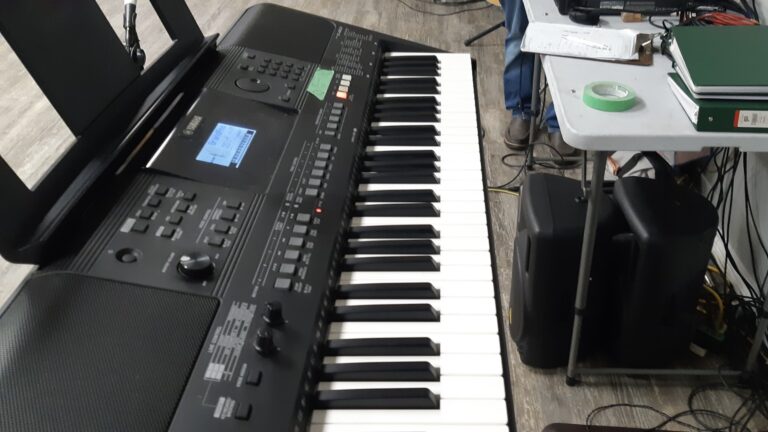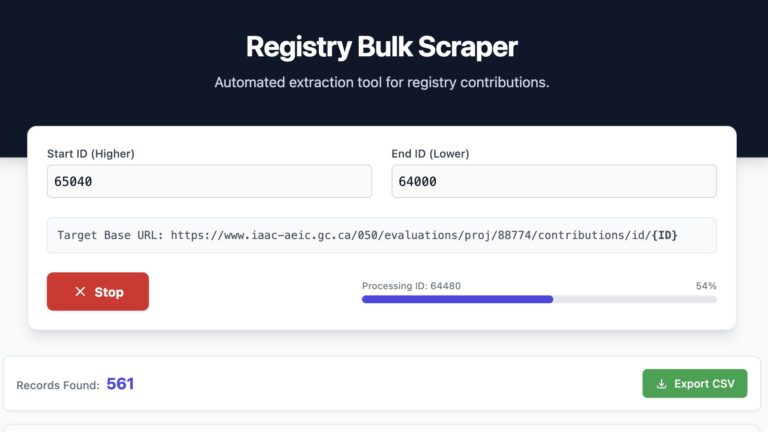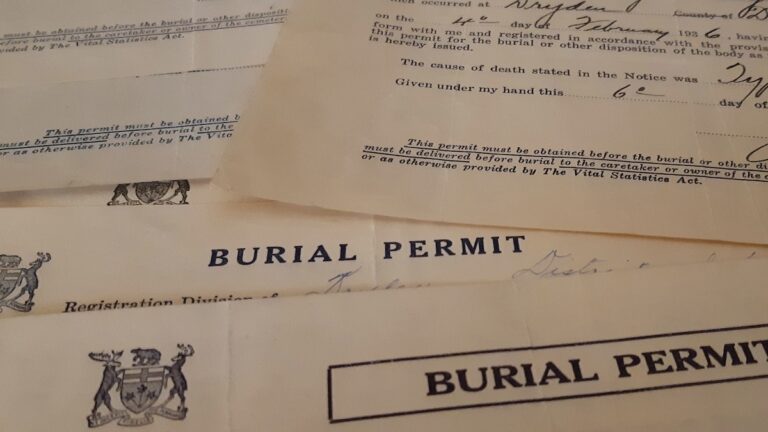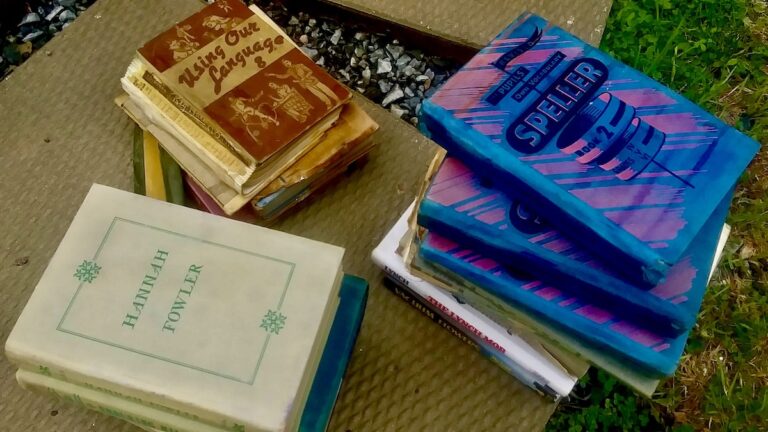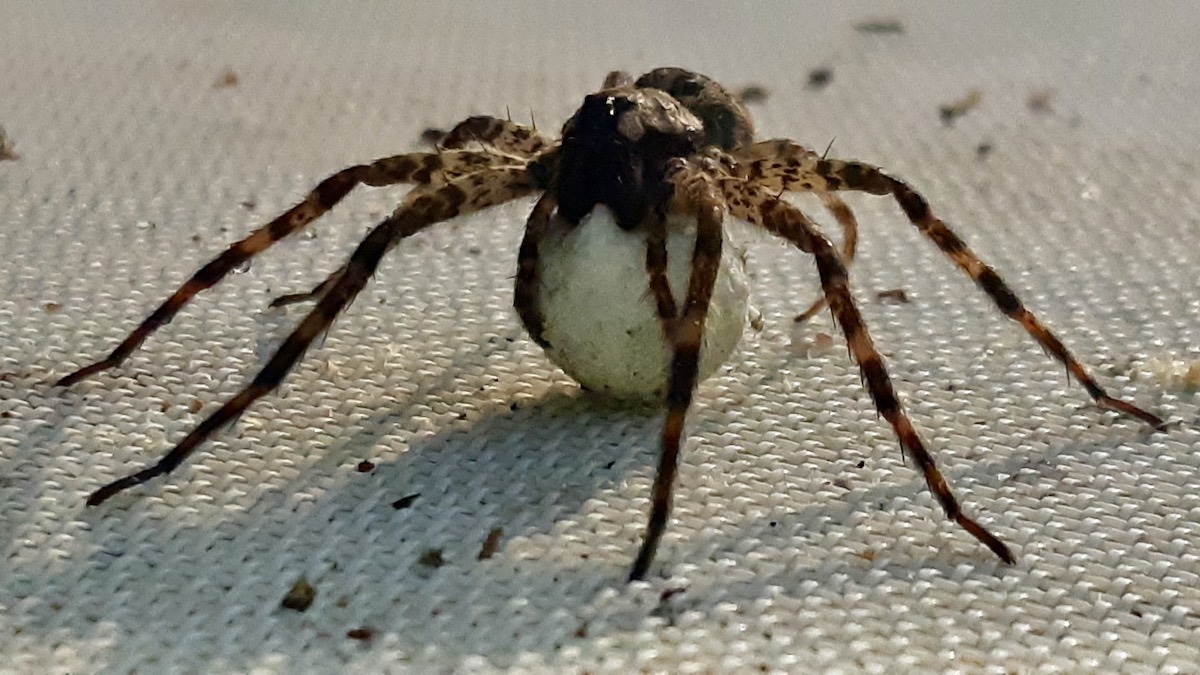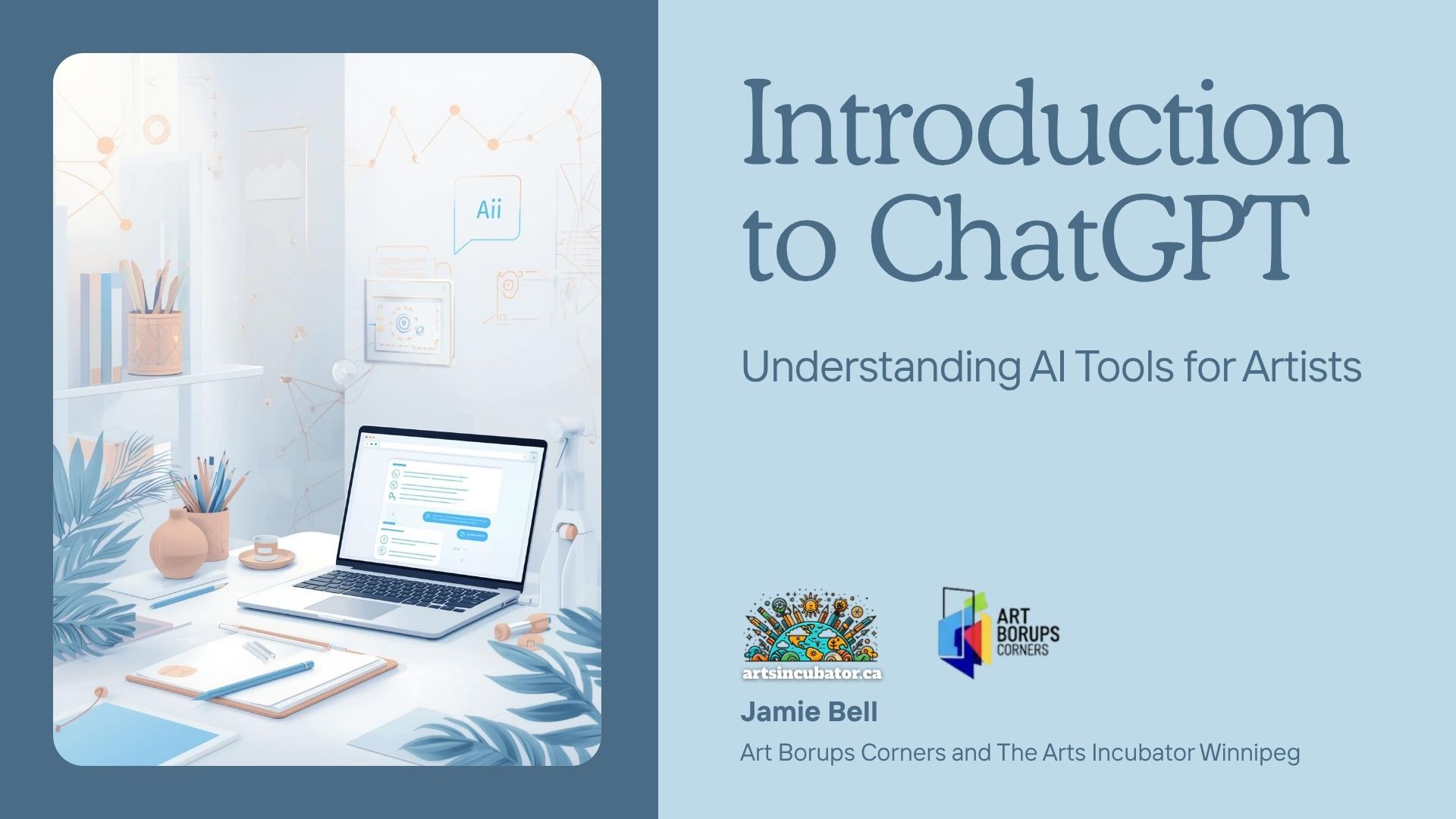
Artists learned how to use ChatGPT for creativity, collaboration, and efficiency in a practical AI workshop.
Learning to use AI for the arts and community programs
The “Introduction to ChatGPT” workshop was delivered by Jamie Bell from Art Borups Corners and The Arts Incubator Winnipeg on July 20, 2025 as part of our ongoing summer professional development series for artists and creative collectives. This presentation builds on a prior program earlier this year developed with support from the OpenAI Researcher Access Program. The session was designed to help participants understand what ChatGPT is, how it works, and how AI tools can be integrated into artistic and administrative practices. The focus was on making artificial intelligence approachable and relevant, especially for artists who may not have a technical background but are curious about new tools shaping the creative landscape.
The workshop began with a clear, plain-language explanation of ChatGPT and the basics of how AI language models function. Jamie described ChatGPT as a conversational tool developed by OpenAI that generates human-like text responses. Using simple examples and analogies, he illustrated how the system “learns” from vast amounts of written material to predict patterns in language, rather than “thinking” independently. This helped participants grasp the concept of generative AI without technical jargon, setting a comfortable and open tone for the session.
Participants were then introduced to a range of creative and practical uses for ChatGPT. Jamie demonstrated how the tool could assist artists in drafting artist statements, exhibition proposals, and grant applications, or even in brainstorming new project ideas. The workshop also explored how collectives and arts organizations could use ChatGPT for administrative tasks such as preparing reports, writing newsletters, and simplifying complex text for broader audiences. These demonstrations helped attendees see how AI could save time and support creative productivity.
A key part of the session involved discussing the benefits and limitations of ChatGPT. Jamie emphasized that while the tool can be helpful for generating ideas and improving workflow, it is not always accurate and can sometimes produce biased or inconsistent results. Participants were encouraged to treat ChatGPT as a collaborator or assistant — a way to spark creativity and structure ideas — but to always review and refine the results with their own voice and critical judgment.
The workshop also touched on ethical and responsible use. Jamie guided an open conversation about issues such as data privacy, originality, and the importance of maintaining artistic integrity when using AI-generated text. Participants reflected on how these technologies could be used responsibly within community and collaborative art contexts, reinforcing the idea that artists have a role in shaping how new technologies are used.
By the end of the workshop, participants had gained both confidence and curiosity about AI. They left with a stronger understanding of what ChatGPT is, practical examples of how it could support their work, and a sense of empowerment to explore technology as part of their creative and professional toolkit. The session demonstrated how tools like ChatGPT can expand artistic practice, strengthen organizational capacity, and inspire new forms of collaboration across the arts community.

